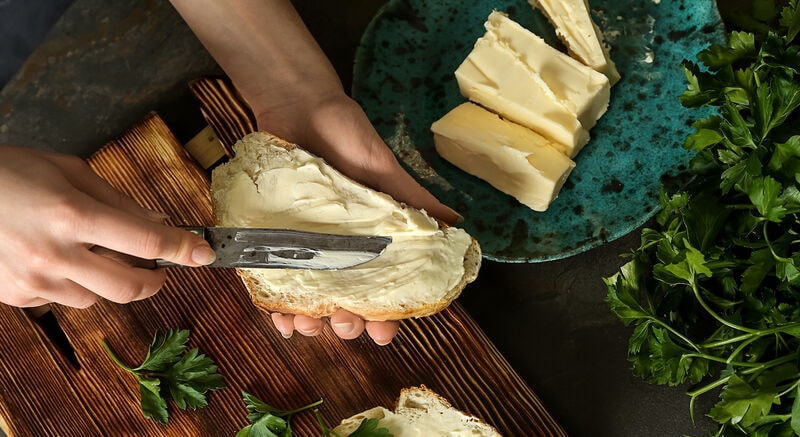
Savor Foods Makes Butter from CO2 and Water
Laura McQuarrie — July 19, 2024 — Lifestyle
References: savor.it & designtaxi
There are more animal-free butter alternatives on the market than ever but Savor Foods stands out by making butter for butter enthusiasts from water and an abundant resource, carbon dioxide. "These are real fats, not a substitute," emphasizes the Californian company.
By capturing CO2 and combining it with hydrogen and oxygen in a thermochemical process, Savor deconstructs the core components of fat to mimic the look, taste and texture of real butter. The result is a product that not only performs like conventional butter but also reduces greenhouse gas emissions and conserves farmland and water resources.
Making a kilo of traditional butter produces 16.9 kilograms of carbon dioxide but Savor's alternative contributes just 0.8 grams.
By capturing CO2 and combining it with hydrogen and oxygen in a thermochemical process, Savor deconstructs the core components of fat to mimic the look, taste and texture of real butter. The result is a product that not only performs like conventional butter but also reduces greenhouse gas emissions and conserves farmland and water resources.
Making a kilo of traditional butter produces 16.9 kilograms of carbon dioxide but Savor's alternative contributes just 0.8 grams.
Trend Themes
1. Carbon-capture Food Production - Utilizing carbon dioxide in food production processes represents a shift in reducing greenhouse gases while creating sustainable food sources.
2. Animal-free Dairy Alternatives - Innovations in creating animal-free dairy products offer consumers plant-based and sustainable options without compromising on taste and texture.
3. Thermochemical Processing in Food - Applying thermochemical processes to deconstruct and reconstruct fats could revolutionize how alternative food products are developed and manufactured.
Industry Implications
1. Food Technology - The utilization of advanced processing techniques to create sustainable and environmentally friendly food alternatives provides immense growth potential in the food technology industry.
2. Sustainable Agriculture - Innovations such as CO2-based butter alternatives highlight the expanding niche of sustainable agriculture focused on reducing environmental impact.
3. Plant-based Foods - The increasing variety of plant-based food products, made possible through advancements in food science, opens new opportunities within the plant-based foods industry.
6
Score
Popularity
Activity
Freshness























